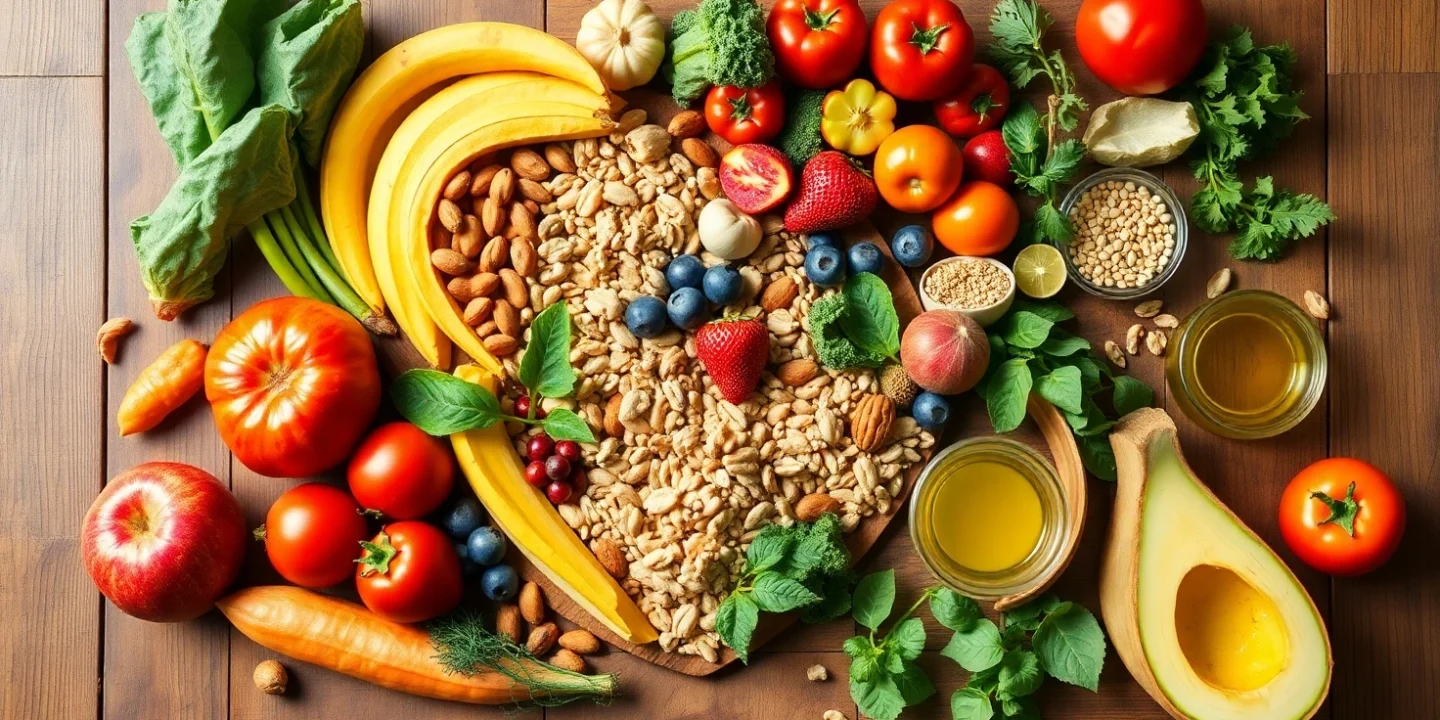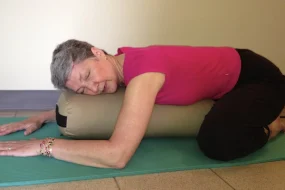
Maintaining optimal cholesterol levels is crucial for heart health. While medications like statins are commonly prescribed, many individuals seek natural methods to manage their cholesterol. Fortunately, lifestyle and dietary changes can significantly impact cholesterol levels. This article explores ten effective strategies to reduce cholesterol without medication.
1. Limit Saturated and Trans Fats
Limiting saturated and trans fats is key to maintaining a healthy heart. These unhealthy fats raise bad cholesterol (LDL) and increase the risk of heart disease. Avoid fried foods, processed snacks, baked goods, and fatty cuts of meat. Instead, choose healthier fats like those found in nuts, seeds, avocados, and olive oil. Reading food labels can help you spot hidden trans fats. Small changes in fat choices can make a big difference in your heart health.
- Saturated fats are found in red meat, full-fat dairy products, and certain oils like coconut and palm oil.
- Trans fats are present in many processed foods, including baked goods and fried items.
Tip: Opt for lean meats and low-fat dairy, and use healthier oils like olive or canola oil for cooking.
2. Increase Soluble Fibre Intake
Soluble fiber helps lower bad cholesterol (LDL) by binding with it in the digestive system and removing it from the body. Foods like oats, apples, oranges, beans, lentils, and barley are rich in soluble fiber. Including these in your daily diet supports heart health and improves digestion. Aim for at least 5–10 grams of soluble fiber per day. Simple changes like eating oatmeal for breakfast can make a real difference in managing cholesterol naturally.
Foods high in soluble fibre:
- Oats and oat bran
- Beans and lentils
- Apples, pears, and citrus fruits
- Barley and psyllium husk
Tip: Aim for 5-10 grams of soluble fibre daily to achieve cholesterol-lowering benefits.

3. Incorporate Healthy Fats
To reduce cholesterol without medication, it’s important to replace unhealthy fats with heart-healthy options. Healthy fats found in avocados, olive oil, nuts, seeds, and fatty fish like salmon can help lower bad cholesterol (LDL) and raise good cholesterol (HDL). Avoid trans fats and limit saturated fats by choosing natural, unprocessed foods. Making these small changes supports better heart health naturally.
- Monounsaturated fats are found in olive oil, avocados, and certain nuts.
- Polyunsaturated fats, including omega-3 fatty acids, are present in fatty fish like salmon and mackerel, flaxseeds, and walnuts.
Tip: Include fatty fish in your diet at least twice a week and use olive oil for cooking.
4. Engage in Regular Physical Activity
To reduce cholesterol without medication, engaging in regular physical activity is essential. Just 30 minutes of brisk walking, cycling, or swimming five days a week can help lower bad cholesterol (LDL) and boost good cholesterol (HDL). Exercise also supports weight loss and improves heart function. Staying active is a natural and powerful way to protect your heart.
Recommended activities:
- Brisk walking
- Cycling
- Swimming
- Jogging
Tip: Aim for at least 150 minutes of moderate-intensity aerobic exercise per week.
5. Maintain a Healthy Weight
To reduce cholesterol without medication, maintaining a healthy weight is crucial. Even losing just 5–10% of your body weight can significantly lower bad cholesterol (LDL) and improve heart health. Combine a balanced diet with regular exercise to manage your weight naturally. A healthy body weight supports better cholesterol control without the need for drugs.
Strategies:
- Monitor calorie intake
- Increase physical activity
- Choose nutrient-dense foods
Tip: Set realistic weight loss goals and track progress to stay motivated.
6. Limit Alcohol Consumption
To reduce cholesterol without medication, it’s important to limit alcohol consumption. Drinking alcohol in moderation or avoiding it altogether can help lower bad cholesterol (LDL) and reduce the risk of heart disease. Excessive alcohol can raise triglyceride levels, negatively affecting heart health. Stick to recommended limits and focus on maintaining a balanced, healthy lifestyle.
Guidelines:
- Men: Up to two drinks per day
- Women: Up to one drink per day
Tip: Opt for non-alcoholic beverages or limit alcohol to special occasions.
7. Quit Smoking
To reduce cholesterol without medication, quitting smoking is essential. Smoking lowers good cholesterol (HDL) and raises bad cholesterol (LDL), increasing heart disease risk. By quitting, you improve your cholesterol levels, enhance blood circulation, and support overall heart health. It’s one of the most impactful lifestyle changes for a healthier heart.
Benefits of quitting:
- Improved HDL cholesterol levels
- Reduced blood pressure
- Decreased risk of heart disease
Tip: Seek support through cessation programs, counselling, or medications if needed.
8. Consider Plant Sterols and Stanols
To reduce cholesterol without medication, consider adding plant sterols and stanols to your diet. These natural substances, found in foods like fortified margarine, nuts, and seeds, help block cholesterol absorption in the intestines. Consuming 2 grams of plant sterols or stanols daily can lower LDL cholesterol by up to 10%. It’s a simple, effective way to support heart health naturally.
Sources:
- Fortified foods like margarine, orange juice, and yoghurt drinks
- Supplements
Tip: Aim for 2 grams of plant sterols or stanols per day for optimal benefits.
9. Explore Natural Supplements
To reduce cholesterol without medication, explore natural supplements like omega-3 fatty acids, garlic, and plant-based fiber. Supplements such as fish oil or psyllium husk can help lower LDL cholesterol and improve heart health. Always consult with a healthcare provider before starting any new supplement to ensure it’s safe and effective for you.
Examples:
- Psyllium husk: A soluble fibre that can reduce LDL cholesterol.
- Red yeast rice: Contains compounds that may lower cholesterol.
- Garlic supplements: May have a modest effect on lowering cholesterol.
Tip: Consult with a healthcare provider before starting any supplement regimen.
10. Adopt a Heart-Healthy Diet
A heart-healthy diet helps reduce cholesterol, control blood pressure, and lower heart disease risk. Focus on eating more fruits, vegetables, whole grains, legumes, and healthy fats like olive oil and nuts. Limit red meat, fried foods, processed snacks, and added sugars. Choose lean proteins like fish or plant-based options. Reduce salt by cooking at home with fresh ingredients and herbs. Drink plenty of water and avoid sugary drinks. Small, consistent changes in your diet can make a big difference in your heart health over time.
Dietary patterns:
- DASH (Dietary Approaches to Stop Hypertension): Emphasises fruits, vegetables, and low-fat dairy.
- Mediterranean diet: Focuses on healthy fats, whole grains, and lean proteins.
Tip: Limit processed foods, sugary beverages, and high-sodium items.
When to Seek Medical Advice
If you experience symptoms like chest pain, shortness of breath, dizziness, sudden fatigue, or irregular heartbeat, it’s important to seek medical advice immediately. These could be signs of serious heart or health issues. Even mild but persistent symptoms, like ongoing high cholesterol or blood pressure, should not be ignored. Regular check-ups can help detect problems early and prevent complications. Don’t wait for symptoms to worsen—early consultation can save your life.
Consider medical advice if:
- You have a family history of high cholesterol or heart disease.
- Lifestyle changes do not lead to desired cholesterol levels.
- You experience symptoms like chest pain or shortness of breath.
Takeaway
Reducing cholesterol without medication is achievable through consistent lifestyle and dietary changes. By incorporating the abovementioned strategies, individuals can take proactive steps toward better heart health.
FAQ: Reduce Cholesterol Without Medication
- Can I really reduce cholesterol without taking any medicine?
Yes, many people successfully lower their cholesterol through lifestyle changes like diet, exercise, and stress management. - What foods help reduce cholesterol naturally?
Oats, fatty fish, nuts, olive oil, beans, and high-fiber fruits like apples and oranges are great for lowering cholesterol. - How long does it take to lower cholesterol naturally?
With consistent changes, you can see improvements in 4 to 6 weeks, but major reductions may take 3 to 6 months. - Is exercise necessary to lower cholesterol?
Yes, regular aerobic exercise like walking, swimming, or cycling helps raise HDL (good cholesterol) and lower LDL (bad cholesterol). - Does drinking water help with cholesterol levels?
While water doesn’t directly reduce cholesterol, staying hydrated supports overall health and aids metabolic functions. - Can weight loss alone reduce cholesterol?
Yes, even losing 5–10% of your body weight can significantly lower LDL cholesterol and improve heart health. - Are plant-based diets effective for lowering cholesterol?
Absolutely. Diets rich in vegetables, fruits, legumes, and whole grains are proven to reduce bad cholesterol levels. - Does stress affect cholesterol levels?
Yes, chronic stress can increase LDL cholesterol, so managing stress through mindfulness, yoga, or relaxation helps. - Is coffee bad for cholesterol?
Unfiltered coffee (like French press or espresso) may raise cholesterol levels; filtered coffee is a better choice. - Can supplements like omega-3 or psyllium help lower cholesterol?
Yes, omega-3 fatty acids and soluble fiber like psyllium husk are shown to support healthy cholesterol levels.
If you’re searching for how to reduce cholesterol without medication, know that lifestyle changes can make a real difference. From following a heart-healthy diet to engaging in regular physical activity, your body can respond positively without relying on prescription drugs. Stay consistent, track your progress, and consult your doctor for the safest and most effective results.







